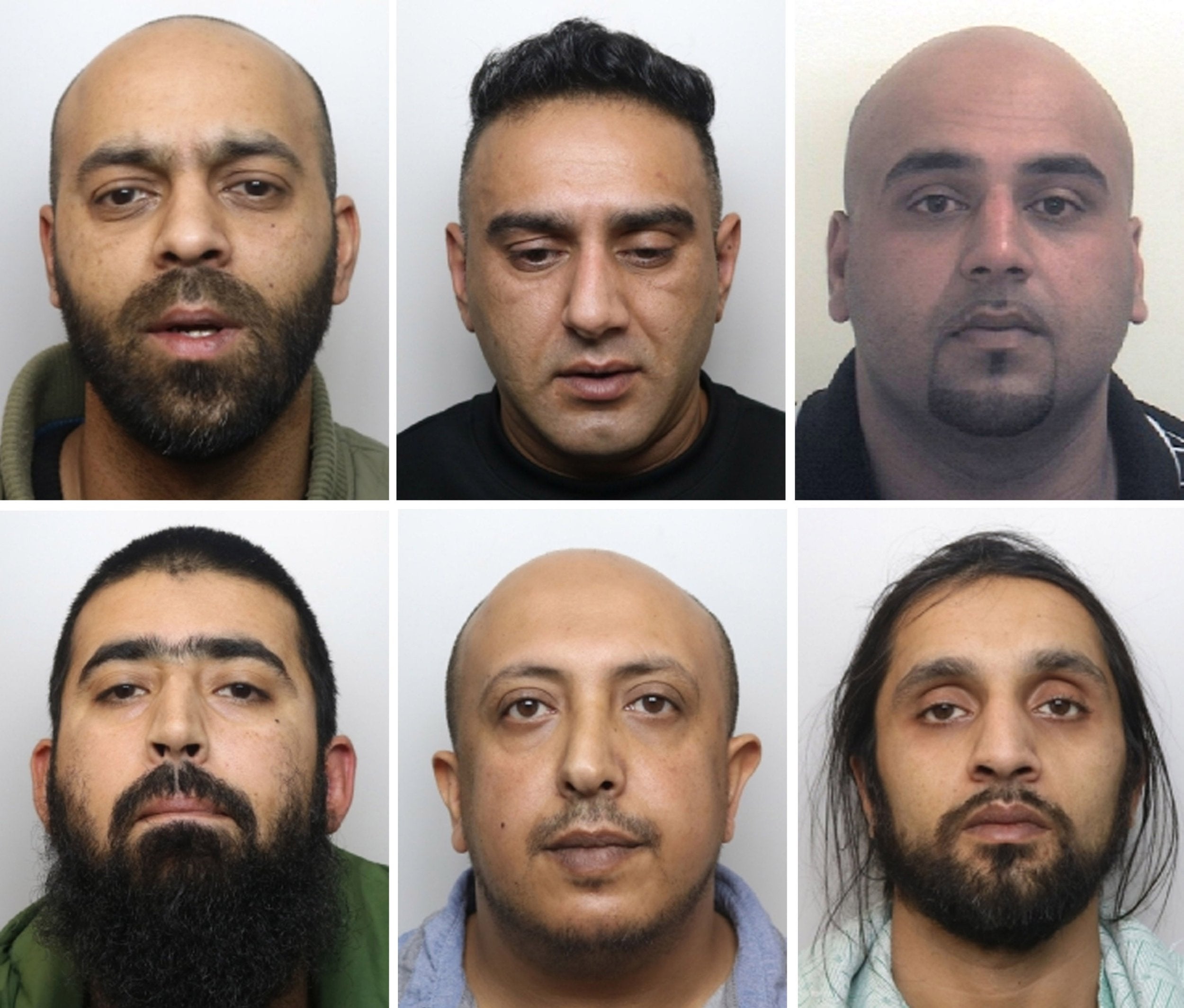Rotherham grooming gangs: National Crime Agency investigating more than 420 suspects in 'unprecedented' operation
Total revealed after seven men convicted of offences including rape and false imprisonment

Investigators are working to trace a total of 426 grooming gang members who abused an estimated 1,500 victims in Rotherham.
The National Crime Agency (NCA) investigation into sexual exploitation between 1997 and 2013 has so far resulted in 13 convictions, as prosecutions continue.
The operation, codenamed Stovewood, could cost £90m if the government continues its current funding until 2024.
The NCA has so far identified 151 “designated suspects”, and has listed 275 others who it has not been able to name. It is currently running 22 separate investigations under Operation Stovewood, with around 290 victims engaging with officers.
Described as “unprecedented in its scale and complexity” because of the vulnerability of victims and witnesses recalling abuse dating back up to 20 years, a spokesperson for the investigation said 24 suspects have so far been charged and 12 have been arrested and bailed, or released under investigation.
Paul Williamson, the senior investigating officer, said the NCA is “committed to investigate all matters within our remit to bring child sex offenders to justice”.
Seven men were convicted of a total of 24 offences, including rape, sexual assault and false imprisonment, at Sheffield Crown Court earlier this week.
Mohammed Imran Ali Akhtar, Nabeel Kurshid, Iqlaq Yousaf and Tanweer Ali, all friends from Rotherham, were found guilty alongside Salah Ahmed El-Hakam, Asif Ali and ‘X’, a man who cannot be named for legal reasons. They will be sentenced later this month.
“I would like to pay tribute to our victims and survivors who have placed their trust in us to support them through this prosecution, and for their courage in giving evidence in what must have been a hugely challenging and emotional experience for them all,” Mr Williamson said. “This case concerned child sexual exploitation arising from events in Rotherham in the late 1990s and into the next decade.
“The victims and survivors were in their teens when they were targeted and subjected to acts of degrading and violent exploitation and have had to wait a long time for justice which – after a herculean effort over the last three years by my officers - has been delivered.”
They were convicted of abusing girls as young as 13 between 1998 and 2005 in Rotherham and the surrounding areas.
The court heard that the seven men befriended the girls, with some leading them to believe they were their boyfriends, before passing them around to be sexually abused by multiple offenders
The men would ply the girls with drugs and alcohol and threatened them with violence or being transported and abandoned in an unfamiliar location if they didn’t comply with the sexual demands.
One of the victims told the trial how she had sex with “at least 100 Asian men” by the time she was 16, and another described how she was gang-raped in a forest and threatened with being left there.
The woman, who was 14 at the time, became pregnant as a result of the attack and was forced by her parents to have an abortion.
In victim impact statements, the women told that the abuse was mainly carried out at night in a variety of secluded or derelict locations, including empty houses where there was no electricity.
They were often sexually abused on mattresses on the floor and locked in rooms so that they couldn’t escape.
Prosecutors said the victims were frequently in cars stopped by police, but their abusers were not deterred.
Operation Stovewood was set up in the wake of the 2014 Jay Report, which laid bare the shocking scale of exploitation in Rotherham between 1997 and 2013 and failure of police and social services to intervene.
Many survivors have since suffered the long-term effects of abuse, including mental health issues, damaging relationships, drug and alcohol addiction and suicidal tendencies.
Similar patterns of exploitation have been uncovered in other British towns and cities, with another gang being convicted and jailed for more than 220 years in Huddersfield.
The home secretary has launched an inquiry into the potential “cultural drivers” behind grooming gangs.
“There will be no no-go areas of inquiry,” Sajid Javid said last month. “I will not let cultural or political sensitivities get in the way of understanding the problem and doing something about it.”
Mr Javid said that perpetrators convicted in high-profile cases have been “disproportionately from a Pakistani background”, adding: “I have instructed my officials to explore the particular context and characteristics of these types of gangs and if the evidence suggests that there are cultural factors that may be driving this type of offending, then I will take action.”
